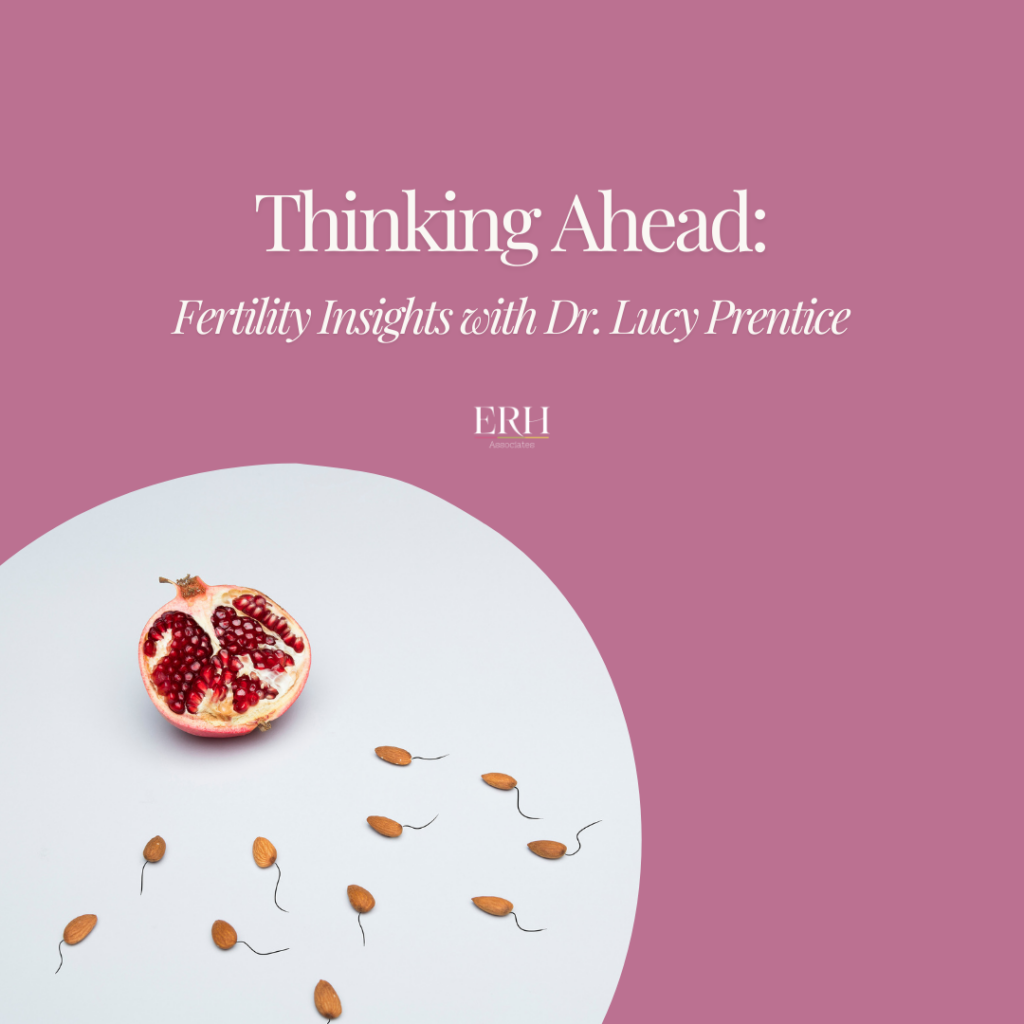When it comes to fertility, timing can feel like everything—but knowing what’s normal, what’s possible, and when to act can be confusing. Whether you’re starting to think about having a baby, planning ahead for the future, or just curious about your options, getting expert guidance early can be incredibly reassuring.
In this article, we’re joined by Dr. Lucy Prentice, fertility specialist at Fertility Associates. Lucy combines up-to-date medical knowledge with a calm, thoughtful approach to care. Below, she shares her insights on some of the most common fertility questions—from when to see a specialist to what your first appointment might involve.
When to See a Fertility Specialist
It’s never too early to start the conversation about your fertility. Even if you’re not trying to conceive right now, understanding your fertility health can help you feel more confident and in control of your future.
In general, we say you should seek specialist review after trying to conceive for 12 months. However, there are a number of situations where an earlier review would be appropriate.
Age is an important factor, particularly for the female partner. Fertility naturally declines with advancing age, so if you’re over 35 and have been trying for six months or more without success, it’s a good idea to check in with a specialist.
There are some medical conditions, where we would advise to seek advice sooner—these include irregular or absent periods, a history of polycystic ovary syndrome (PCOS), endometriosis, a past history of pelvic infection, or a family history of early menopause. For men, a history of significant testicular trauma, surgeries on the genital tract, undescended testicles in childhood, or a history of anabolic steroid use, should prompt early referral.
For those not ready to start a family but wanting to keep their options open, proactive fertility assessments or discussions around egg freezing can be empowering steps. These conversations are about planning and being informed—not about diagnosing a problem.
Finally for those where unassisted pregnancies aren’t possible such as for single persons or those in the LGBTQI+ community, seeing a fertility specialist is the first step in starting the conversations around growing their family.
Common Fertility Options and Treatments
Fertility care isn’t one-size-fits-all. There are a range of options depending on where you’re starting from and what your goals are.
For some people, making small lifestyle changes and understanding their natural cycle is all that’s needed. Others may benefit from medical support such as ovulation induction, intrauterine insemination (IUI), or in vitro fertilisation (IVF). We also offer options for fertility preservation, such as egg or embryo freezing, which can be especially helpful for people who are not ready to start a family now but want to keep that option open.
For some, donor sperm, eggs, embryos or surrogacy may be the right path. What’s most important is that your treatment plan is tailored to your individual situation, preferences, and values. At Fertility Associates, we work closely with you to ensure your care is both effective and aligned with your goals.
What to Expect at Your First Appointment
Your first fertility appointment is designed to be a low-pressure, informative experience. We’ll start by discussing your medical and reproductive history, any current symptoms or concerns, and what your hopes and goals are.
We may arrange some initial tests—like hormone blood tests, semen analysis, or an ultrasound scan—to get a clearer picture of your fertility health. From there, we can talk about your options and what next steps might look like, if any.
If you are embarking on this journey as a couple, we highly recommend both of you attend this appointment. If your partner is unable to attend, you’re welcome to bring a support person. We pride ourselves on providing inclusive, respectful care to everyone who walks through our doors. The most important thing to remember is that this is a conversation, not a commitment—you’re gathering information and taking a step toward understanding your body better.
Final Thoughts: Lucy’s Advice for Women Thinking About Their Fertility Future
Trust your instincts—if something doesn’t feel right, or even if you’re simply curious about your fertility, it’s okay to ask questions and get checked. When it comes to fertility, being informed sooner rather than later can make a meaningful difference.
One of the most important predictors of success in fertility treatment is female age, so if you’re considering making an appointment, I’d encourage you to take that step early. There’s no single “right” time or path to starting a family—every journey is unique, and that’s completely okay. What matters most is that you feel empowered, supported, and informed about your options.
For more information or to book an appointment, visit the Fertility Associates website—their experienced team, including Dr. Lucy Prentice, is here to help you feel informed and supported at every stage.
You can also explore our ERH blog article on reproductive life planning

Comments +